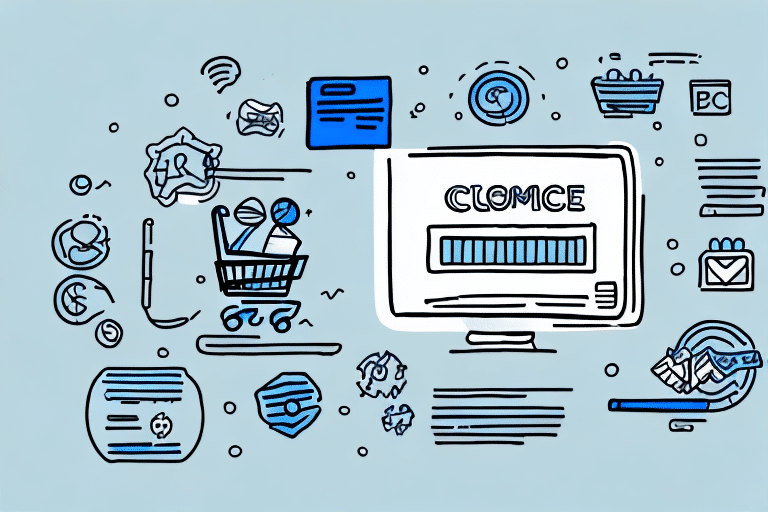The Importance of Customer Satisfaction in Ecommerce
Customer satisfaction is the cornerstone of any successful ecommerce business. Happy customers are not only likely to return but also to recommend your business to others. According to a study by Salesforce, 84% of customers say that the experience a company provides is just as important as its products and services. Additionally, 90% of customers are more likely to make a repeat purchase from a company that demonstrates a commitment to excellent customer service.
Providing a seamless and user-friendly online shopping experience is crucial. This includes having an easy-to-navigate website with clear product descriptions, high-quality images, and a straightforward checkout process. Offering multiple payment options and providing timely, accurate shipping information further enhances customer satisfaction.
Effective communication plays a vital role in maintaining customer satisfaction. Promptly responding to inquiries and concerns, along with providing regular updates on order statuses, helps build trust and loyalty. Prioritizing customer satisfaction enables ecommerce businesses to cultivate a loyal customer base and drive long-term success.
Challenges of Scaling Your Ecommerce Business
Maintaining Inventory Levels
As your ecommerce business grows, keeping up with inventory demands becomes increasingly complex. Ensuring that popular products are always in stock while avoiding overstocking requires robust inventory management systems. Utilizing tools like Shopify Inventory Management can help streamline this process.
Managing Finances
Scaling your business often leads to increased expenses alongside growing sales. It's essential to have a solid financial plan with clear goals and projections to maintain profitability and sustainability. Implementing accounting software like QuickBooks can assist in monitoring finances effectively.
Expanding Your Team
Growth may necessitate expanding your team. Hiring the right individuals who align with your company's values and vision is critical. Establishing a clear hiring process with well-defined roles and responsibilities ensures you build a strong, cohesive team capable of supporting your business's next stages.
Key Metrics to Track When Scaling Your Ecommerce Business
Customer Retention Rate
Customer retention rate measures the percentage of customers who continue to do business with you over a specific period. High retention rates indicate customer loyalty and satisfaction.
Customer Acquisition Cost (CAC)
CAC calculates the cost of acquiring a new customer. Keeping CAC low while maintaining high-quality customer acquisition strategies is vital for profitability.
Customer Lifetime Value (CLV)
CLV estimates the total revenue a business can expect from a single customer account. Increasing CLV through upselling and cross-selling can significantly boost profits.
Conversion Rate
The conversion rate measures the percentage of website visitors who complete a desired action, such as making a purchase. Monitoring and optimizing conversion rates can lead to increased sales without additional marketing costs.
Inventory Turnover Rate
This metric assesses how quickly inventory is sold and replaced over a specific period. A balanced turnover rate helps prevent overstocking and stockouts.
Strategies for Maintaining Customer Satisfaction During Growth
Personalization
Personalizing the shopping experience makes customers feel valued. This can include personalized product recommendations based on browsing history, tailored discounts, and customized email campaigns.
Building a Strong Customer Service Team
A dedicated and well-trained customer service team can handle increased inquiries and issues efficiently. Empowering your team to resolve problems quickly enhances customer trust and satisfaction.
Gathering and Utilizing Customer Feedback
Regularly collecting feedback through surveys, reviews, and social media interactions helps identify areas for improvement. Implementing changes based on feedback demonstrates a commitment to meeting customer needs.
Offering Incentives and Rewards
Incentives such as loyalty programs, exclusive discounts, and personalized offers encourage repeat business and strengthen customer loyalty.
Leveraging Technology and Communication for Customer Satisfaction
Enhancing the Customer Experience with Technology
Utilizing technologies like live chat support, personalized product recommendations, and user-friendly mobile apps can significantly improve the customer experience. Tools like Zendesk offer comprehensive customer service solutions to streamline support.
Proactive Communication
Proactively communicating with customers through regular updates, newsletters, and satisfaction surveys keeps them engaged and informed. This strategy helps maintain a strong relationship even as your business grows.
Utilizing Social Media
Social media platforms provide a direct line of communication with customers. They can be used to address concerns swiftly, showcase new products, offer exclusive promotions, and build a community around your brand.
Managing Operations and Quality Control During Growth
Managing Inventory and Fulfillment
Effective inventory and fulfillment management is critical as order volumes increase. Investing in warehouse management systems or partnering with third-party logistics providers like ShipBob can help maintain fast and accurate order fulfillment.
Balancing Growth and Quality Control
While expanding rapidly, it's essential to maintain high-quality standards across all business aspects. Implementing quality control measures ensures consistent product quality and accurate order fulfillment, which are vital for customer satisfaction.
The Impact of Reviews and Ratings
Online reviews and ratings significantly influence purchasing decisions. Encouraging customers to leave reviews and promptly addressing negative feedback can enhance your business's reputation and trustworthiness. According to BrightLocal, 87% of consumers read online reviews for local businesses, and 97% say reviews influence their buying decisions.
Case Studies: Successful Ecommerce Businesses Maintaining High Customer Satisfaction
Studying successful ecommerce businesses provides valuable insights into effective strategies for maintaining customer satisfaction during growth. Companies like Amazon, Zappos, and Warby Parker have demonstrated that prioritizing customer satisfaction while scaling leads to sustained success. These companies focus on personalized customer experiences, efficient fulfillment processes, and robust customer service frameworks to retain and delight their customer base.
In conclusion, maintaining customer satisfaction is critical to the success of any ecommerce business, especially as it scales. By focusing on personalization, building a strong customer service team, leveraging technology effectively, and staying engaged with customers through proactive communication and feedback, you can create a shopping experience that not only meets but exceeds customer expectations, ensuring long-term growth and profitability.






















